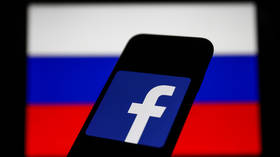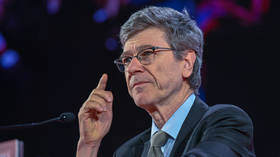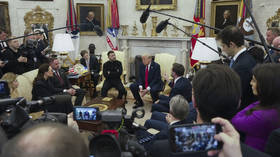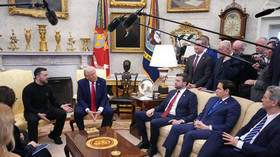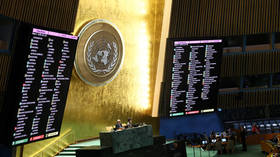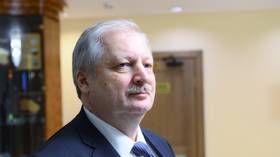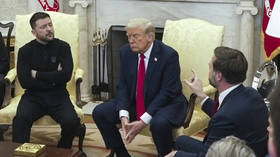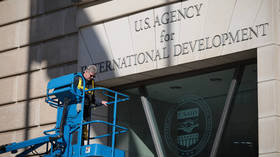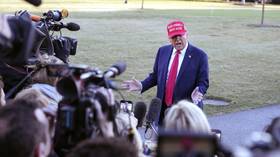Twitter to label Belarusian state media posts

Twitter will label and limit the spread of posts by Belarusian state media outlets and their senior personnel in a crack-down on “misinformation” about the conflict in Ukraine, it announced on Thursday.
Yoel Roth, the company’s head of site integrity, announced on Thursday that it would label the accounts of 15 Belarusian outlets, including the country’s largest news agency, BelTa, whose account has some 37,000 followers, and the state broadcaster Belteleradio. Twitter claims they have been sharing government-created “editorial points.”
“We’ve seen evidence that these outlets, as well as their affiliates in Russia, have engaged in information warfare, and are employing media and other assets that they control to propagate favorable narratives and to confuse and distract the public about what is going on,” Roth said, as reported by Reuters.
Tweets made by labeled accounts have only a limited visibility in Twitter’s ‘top search’ feed and recommendations. According to the network’s content policy, it automatically labels posts from designated state-affiliated media in cases “where the state exercises control over editorial content through financial resources, direct or indirect political pressure, and/or control over production and distribution.”
Twitter has already labeled posts from more than 20 countries, including China, Russia, and Iran, and has plans to expand the procedure globally, with Belarus being a priority, “given the context of the conflict between Russia and Ukraine.” It has also started to reduce the global visibility of posts containing links and quotes from RT and the Russian news agency Sputnik since Russia’s offensive in Ukraine in late February, and restricted access to them from EU member states in early March.
In response, the Russian media regulator, Roskomnadzor, has blocked Russian users’ access to Twitter and also Facebook, which has imposed a similar ban on RT and Sputnik. Consistent access to Instagram, another social network that has censored Russian state media, has also been affected, some users report.
Belarus is considered Russia’s ally and was one of the launchpads for the Russian offensive, with the country’s president, Alexander Lukashenko, vowing to help prevent any attempt to cut Russia’s supply lines or attack the country from the rear. Belarusian experts were also tasked by Minsk with restoring energy to Ukraine’s Russian-seized Chernobyl former nuclear power plant.
The Russian incursion into Ukraine has now entered its third week. Moscow invaded its neighbor on 24 February, following a seven-year standoff over what it claimed was Ukraine’s failure to implement the terms of the Minsk agreements, and after it officially recognized the sovereignty of the republics of Donetsk and Lugansk in the Donbass. The Kremlin has claimed the attack was necessary to eliminate threats coming from Ukraine towards both the two breakaway regions and Russia itself. Kiev has described the Russian assault as an unprovoked act of aggression and denied claims it was planning to retake the republics by force. Its allies have subsequently imposed unprecedented economic sanctions on Russia, and numerous Western companies are quitting the Russian market.
